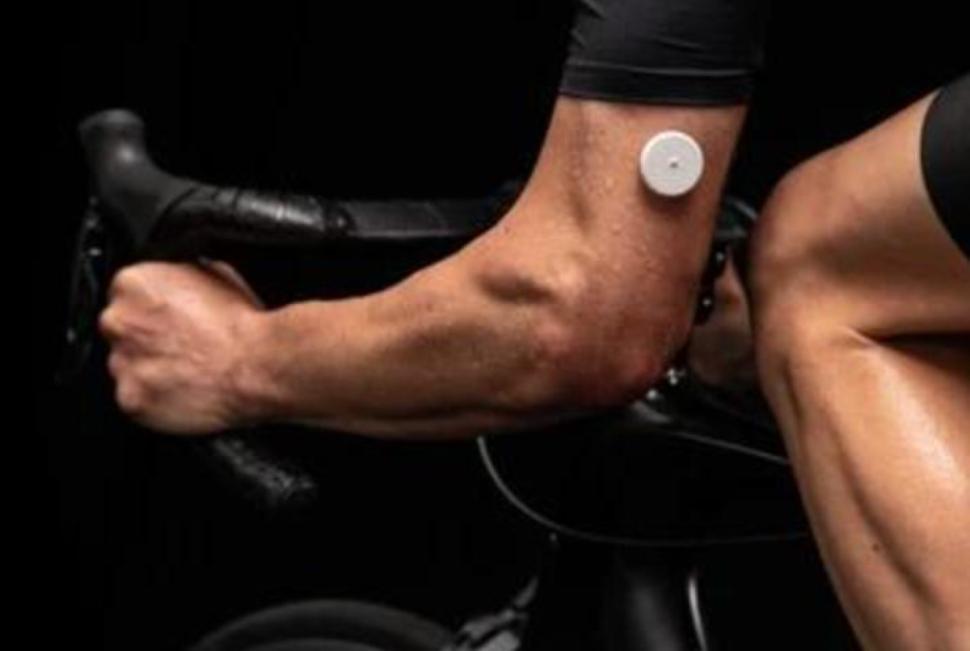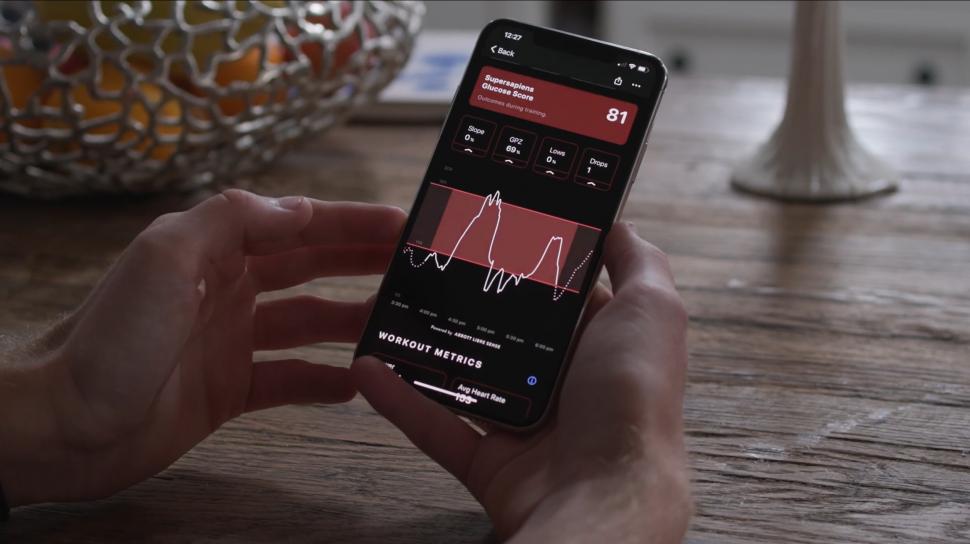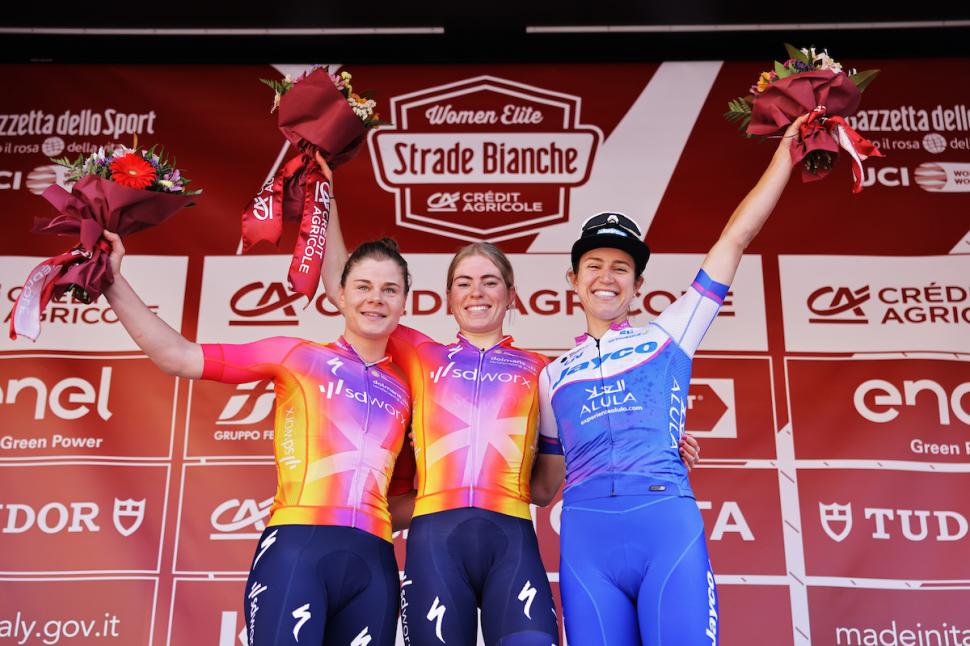- News
- Reviews
- Bikes
- Accessories
- Accessories - misc
- Computer mounts
- Bags
- Bar ends
- Bike bags & cases
- Bottle cages
- Bottles
- Cameras
- Car racks
- Child seats
- Computers
- Glasses
- GPS units
- Helmets
- Lights - front
- Lights - rear
- Lights - sets
- Locks
- Mirrors
- Mudguards
- Racks
- Pumps & CO2 inflators
- Puncture kits
- Reflectives
- Smart watches
- Stands and racks
- Trailers
- Clothing
- Components
- Bar tape & grips
- Bottom brackets
- Brake & gear cables
- Brake & STI levers
- Brake pads & spares
- Brakes
- Cassettes & freewheels
- Chains
- Chainsets & chainrings
- Derailleurs - front
- Derailleurs - rear
- Forks
- Gear levers & shifters
- Groupsets
- Handlebars & extensions
- Headsets
- Hubs
- Inner tubes
- Pedals
- Quick releases & skewers
- Saddles
- Seatposts
- Stems
- Wheels
- Tyres
- Health, fitness and nutrition
- Tools and workshop
- Miscellaneous
- Cross country mountain bikes
- Tubeless valves
- Buyers Guides
- Features
- Forum
- Recommends
- Podcast
 Supersapiens glucose monitor
Supersapiens glucose monitorSupersapiens cancels all memberships and stops shipping glucose sensors amid "strategic restructuring"
Supersapiens, the brand behind the continuous blood glucose-monitoring tech that has increased in popularity across the cycling world in recent years, has announced that it is undergoing a "strategic restructuring" amid "an increasingly challenging business environment", with all memberships terminated and shipping of sensors stopped.
The company's website is now empty except for a statement and customers were contacted last night by email as the news was communicated. Supersapiens' main product was the disc-shaped blood sugar tracker, the Abbott Libre Sense Biosensor — used by an increasing number of professional riders, but banned during races — which along with a £130 monthly subscription and app allowed riders to monitor their blood glucose levels with the aim of helping to optimise their nutrition through the real-time data and lessons learnt.
> REVIEW: Supersapiens Glucose Monitoring System Subscription (Monthly)
While much of what will come next for Supersapiens remains at this point unclear, the company stating it "remains steadfast" in its "core mission to empower athletes" and will continue in a "new chapter", the service as it was previously is no more.
An email to customers, shared by DC Rainmaker, explains how "significant changes" include no more sensors being shipped, all memberships being terminated, limitations to the app, and the Supersapiens dashboard closing at the end of March.
A statement that is now displayed when accessing the brand's website said:
It is with a heavy heart that we announce a significant transition in our operations. This period of strategic restructuring is both a reflection of our commitment to our mission and an acknowledgement of the
evolving landscape in which we operate. Despite these changes, our core mission — to empower athletes with innovative insights into their performance — remains steadfast.
The journey we've embarked on together has been marked by remarkable milestones, achieved through the collective effort of our community, our dedicated team, and our inspiring ambassadors and partners.Your unwavering support and commitment have been instrumental in pushing the boundaries of what's possible, embodying the essence of perseverance and excellence. We are Supersapiens.
Our reflection on this journey is filled with gratitude for every athlete, partner, investor, and supporter who has been a part of our story. Your passion, dedication, and commitment to pushing the envelope have been the driving force behind our mission and will continue to guide us as we move forward.
Thank you for your belief in us, for challenging your limits, and for joining us on this incredible journey.As we step into this new chapter, we are filled with optimism and excitement for what the future holds, confident that it will be as passionate, dedicated, and committed to excellence as the path we have travelled together.
Coming with the enticing prospect of helping cyclists to "never bonk again", Supersapiens grew in popularity in recent years, with many professional riders using its products in training. It was however banned by the UCI in-competition, a decision the American brand said it respected and it remained "committed to redefining the preparation of cyclists at all levels".
That decision led EF Education-EasyPost team manager, and former professional rider, Jonathan Vaughters to call the UCI "on brand", suggesting that "if they can't understand it, they ban it".
In 2021, The Cyclists' Alliance had partnered with the sports performance company, two-time Australian national road champion Gracie Elvin arguing that "using evidence-based research and a panel of industry experts, with the support from Supersapiens, will enable us to push for a higher standard of health, well-being, and duty of care in professional women's cycling".
Kristen Faulkner was stripped of her third place at Strade Bianche last year for wearing her continuous glucose monitor during the race. The Jayco AlUla rider could be seen wearing a disc-shaped blood sugar tracker under the sleeve of her jersey during the race and on the podium afterwards.
[Alex Whitehead/SWpix.com]
According to the UCI's regulations, "devices which capture other physiological data, including any metabolic values such as but not limited to glucose or lactate are not authorised in competition".
Dan is the road.cc news editor and joined in 2020 having previously written about nearly every other sport under the sun for the Express, and the weird and wonderful world of non-league football for The Non-League Paper. Dan has been at road.cc for four years and mainly writes news and tech articles as well as the occasional feature. He has hopefully kept you entertained on the live blog too.
Never fast enough to take things on the bike too seriously, when he's not working you'll find him exploring the south of England by two wheels at a leisurely weekend pace, or enjoying his favourite Scottish roads when visiting family. Sometimes he'll even load up the bags and ride up the whole way, he's a bit strange like that.
Latest Comments
- hawkinspeter 4 hours 59 min ago
We've got one in Bristol, just near near Temple Meads station. It was supposed to lead to the new stadium, but then the stadium plan moved to North...
- Secret_squirrel 6 hours 59 min ago
The Junior Minister appears pig ignorant of the law in this area....
- David9694 7 hours 19 min ago
Protesters march to Cornwall castle but are barred from entering...
- Hirsute 8 hours 36 sec ago
And creating transgender mice. Transgender/ transgenic it's the same thing.
- Sredlums 9 hours 17 min ago
Agreed, and to be clear, I don't expect everybody to be an expert in everything (I certainly am not). Ha, I worked at bike shops long enough to...
- hawkinspeter 10 hours 52 min ago
Opposition to controversial East Bristol Liveable Neighbourhood ‘will filter away’ say council bosses...
- quiff 12 hours 44 min ago
I know it's not the same, but they are saying Quest will have free highlights.
- chrisonabike 14 hours 6 min ago
Yeah but if you take away any chance of getting their licence back they'll turn into some kind of amoral road-bandit! * checks court records again ...
- mdavidford 14 hours 47 min ago
As far as I can see, the only place anything like that number appears in the source story is in the video, near the end, when they're chatting...
- David9694 15 hours 47 min ago
A338: Van flips over in crash on busy road https://www.bournemouthecho.co.uk/news/24981719.a338-van-flips-crash-bus... 40 mph zone



Add new comment
17 comments
I understand new and groundbreaking tech like this won't be cheap, but after paying presumably (and understandably) quite a lot of money for the hardware, why is the monthly subscription set so high at £130/mth? That just seems like blatant profiteering. With such a high cost they were never going to sell enough subscriptions to be viable. And now they've let down all their existing customers because of this.
I think the problem was there wasn't enough profiteering to prop up the business, the cost of CGM sensors from Abbott or Dexcom to the end user is around £110 a month, I doubt whether Abbott were giving that much of a discount to Supersapiens, so slim margins combined with low subscriber numbers...
I wonder if they were essentially undercutting the medical-industrial complex and there were diabetics ordering them this way instead of through the convoluted insurance billing / discounting / kickback system with a prescription. Dexcom & Abbott may have decided (or been pressured) to shut off this sales path.
My dad who is in his seventies and lives alone is diabetic, and we'd like him to have continuous monitoring, but Medicare only covers test strips.
I spotted a strange smart/medical watch on AliExpress a few weeks back and didn't believe the blurb, but as it was less than £20, I thought I'd give it a go. Now using it and it looks like it does what it advertises, but am suspicious of quite how accurate it is. It measures heart rate, blood pressure, blood oxygen and blood glucose all non-invasively. It's also got an ECG function but you have to put a finger on a sensor on the side of it for that to work - my wife had to give it a go as her sister had problems with a long QT interval that's likely heriditary, but luckily her QT is within a normal range. (She's also had her heart checked by doctors, so it's not like she's trusting her life to some chinese techy gadget).
https://www.aliexpress.com/item/1005006064251752.html
Blood pressure monitoring on a fitness tracker is an especially crazy claim, I've never heard of anyone having that tech yet, not even £1000 garmins.
Yeah, I was incredulous when seeing the advert. I think my wife's got an arm cuff device somewhere, so I might compare numbers between them if I get bored enough.
I believe the Samsung Galaxy Watch 5 can measure blood pressure, so it's not that bizarre. (Probably using photoplethysmography)
You've never heard of Samsung then?
https://www.samsung.com/uk/apps/samsung-health-monitor/
Edit: ninja'd by the rodent ...
Samsung have had this since the Watch 3 and it is MHRA approved. It does require monthly calibration against a cuff based device thoough.
How would you get blood glucose non-invasively?
By using spectroscopy to analyse blood in a vein.
I've since watched a couple of youtube videos testing these cheap watches and they're not very accurate (within 10% at best) and are fairly rubbish at detecting peaks.
I had to edit a paper on this not long ago, it can be done with a pretty high level of accuracy by assessing the density of glucose in blood or tissue from the way it reflects electromagnetic waves, microwaves or near-infrared light. Electromagnetic sensors were highly accurate as I recall, so close to standard blood testing that it made no odds. The others were quite accurate but easily affected by external factors. I doubt you'd get the optimal method and best equipment in a $20 fitness watch though.
Snake oil isn't quite as profitable as they thought, shame.
Surprisingly for the bio-med tech space, it's not snake oil for a change. It's a very useful tool especially for people who suffer diabetic episodes.
You're right that it clearly isn't profitable though, I hope they didn't try to balance the books by selling user biomed data in what would be a clear breach of GDPR in the UK/EU
I think that's the big issue - for all but the most committed sportsperson, or somebody with diabetes/other blood-sugar management issues, this just isn't worth the money they're charging. It's a really cool idea and it'd be interesting to know, but really if we want to go faster, most of us just need to ride our bikes more!
You can get that from the likes of Dexcom & Abbott (whose sensors Supersapiens were using) though, this just seemed to be a software layer using the Freestyle Libre sensors. Dexcom have a Connect iQ app that can expose glucose level, trend and history on Garmin head units & watches, so unless the Supersapiens analysis was very athlete focussed and specific, it's hard to see what the USP was.
Luckily for diabetics the same tech already existed for them, e.g the freestyle and dexcom devices, supersapiens just reappropriated it for pro cycling.
I tried this. Not snake oil at all, and taught me just how much food I have to stuff in my face. I never had much of a hunger response, which has lead to bonking and salt deprivation. Wonderful learning tool. Not much sense to keep it around after the learning process, though.